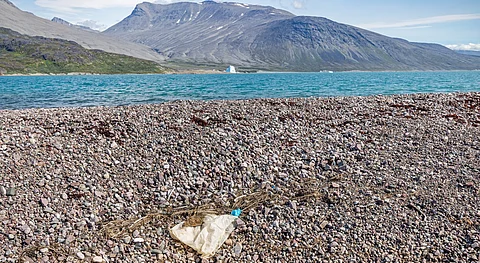

Indigenous groups and waste pickers are urging for a Global Plastic Treaty that includes a Just Transition, as INC 5.2 talks in Geneva continue.
They emphasize the disproportionate harm caused by plastic pollution to Indigenous lands and communities, advocating for a treaty that respects Indigenous rights and includes binding obligations for a Just Transition.
Indigenous groups, as well as those representing waste pickers and unorganised workers, have called for a Global Plastic Treaty that recognises just transition. This, as talks under the fifth session of the Intergovernmental Negotiating Committee (INC 5.2) to develop an international legally binding instrument on plastic pollution, are on in Geneva.
First peoples say that even though they protect 85 per cent of the world’s remaining biodiversity across just 20 per cent of the planet’s land, they are being disproportionately harmed by the overproduction and death cycle of plastics.
“The climate and plastic pollution crises are both borne out of an imbalance of power. They depend on the ability of governments and polluting industries to use Indigenous lands, air, waters, ice and bodies as sacrifice zones. This disrupts Indigenous Peoples symbiotic relationship to ecosystems, animal relatives, traditional medicine, water, land, air, and ice,” a statement by groups including the International Alliance of Waste Pickers (IAWP) and the Just Transition Alliance (JTA) noted.
Indigenous peoples and the ecosystems they are in relationship with are now forcefully both a source and sink for toxic chemicals produced throughout the death cycle of plastics.
“Our bodies, our food, our medicines, our children—we bear the burden of a crisis we did not create,” said Viola Vi Waghiyi, Yupik Mother and Grandmother, Tribal Citizen of the Native Village of Savoonga, and Environmental Health and Justice Director with Alaska Community Action on Toxics.
The statement highlighted how plastics and toxic chemicals disrupt the deep, symbiotic relationships indigenous peoples maintain with land, water, animals, and the natural world.
Microplastics and pollutants have even reached remote Arctic regions, threatening food security, language transmission, and cultural survival.
“An Indigenous Just Transition is urgently needed—one that reharmonises relations with Mother Earth, respects Indigenous cosmovisions, and upholds rights as enshrined in the UN Declaration on the Rights of Indigenous Peoples (UNDRIP) and the Indigenous and Tribal Peoples Convention (ILO Convention No. 169),” the statement added.
Waste pickers and unorganised workers too called for a just transition and recognition of their rights.
“The International Alliance of Waste Pickers (IAWP), representing more than 40 million waste pickers worldwide, calls for a treaty that recognises wastepickers essential role and includes just transition as a binding obligation,” said the statement.
“We are the ones facing this crisis every day—not from air-conditioned offices, but from the streets and the dumpsites,” said Soledad Mella, waste picker leader from Chile and IAWP delegate. “We demand a treaty that recognises, protects, and includes us at every step of the process.”
IAWP outlined two core demands:
Just transition must be a binding component of the treaty—not optional or voluntary.
The financial mechanism must explicitly reference just transition and guarantee direct access to funding for affected communities, not filtered through market-based schemes.
IAWP also advocated for the adoption of reuse systems and Extended Producer Responsibility (EPR) as key strategies to reduce plastic production and pollution at the source.
The INC 5.2 talks began on August 5 at the Palais des Nations in Geneva. They will end on August 14.